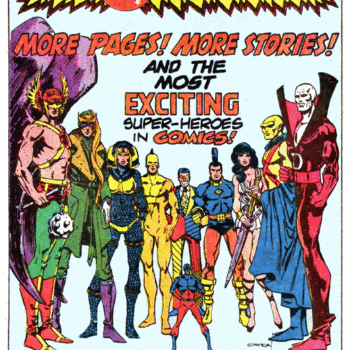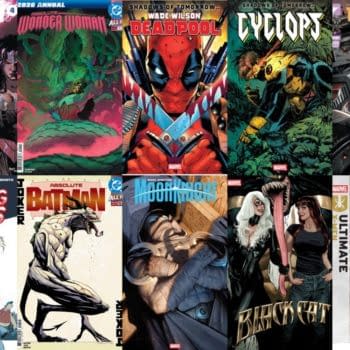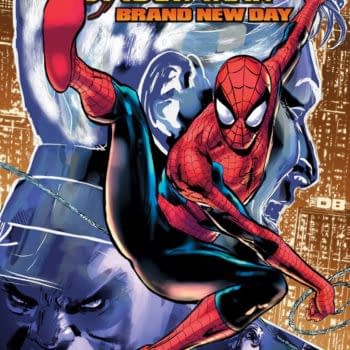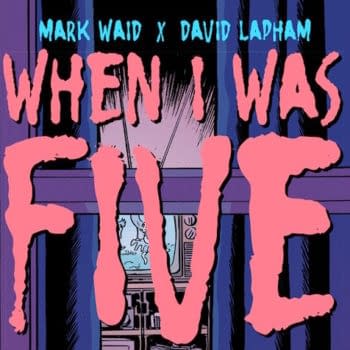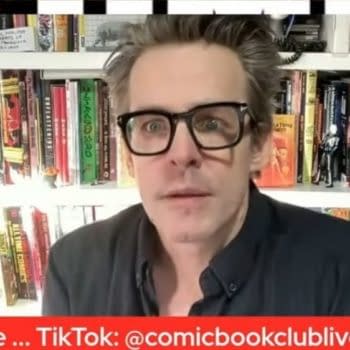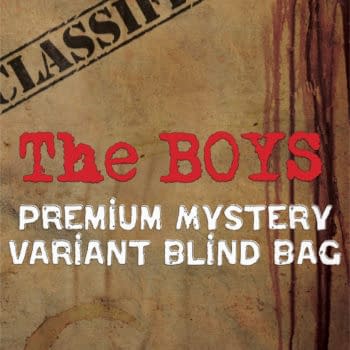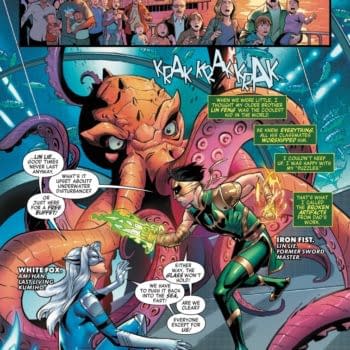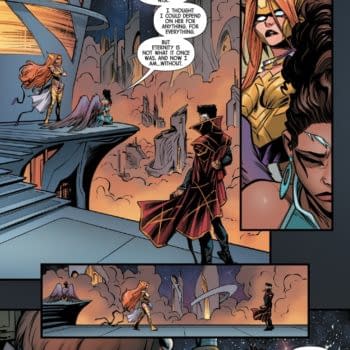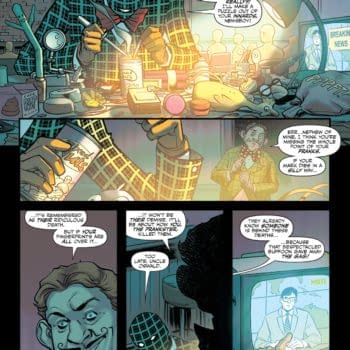Posted in: Comics, Recent Updates | Tagged: Comics, dc, dennis o'neil, denny o'neil, elseworlds, how to write comics and graphic novels, How to write comics and graphic novels by Dennis O'Neil, marvel, MVL, what if
How To Write Comics And Graphic Novels by Dennis O'Neil #18 – Aren't They All?

I'm sorry if what I'm about to write crumbles someone's world but…All superhero stories are imaginary.
I'll give those who need it a moment to pull themselves together.
Now, back to our thesis: All superhero stories are imaginary, but…er—some are more imaginary than others? Beginning in the early 60s, , DC Comics editor Mort Weisinger began to occasionally publish what he labeled "Imaginary Stories—stories that departed from what had been established about continuing characters. For example, the lead feature in Lois Lane #19 was titled "Mr. and Mrs. Clark (Superman) Kent". (I know, I know…in more recent iterations, Clark and Lois did get married, but, hey, people, we're talking 50-plus years ago) Later, there were stories about Superman and Batman getting married, having kids, and on and on and on…
DC's friendly enemy, Marvel, had a slightly different approach to the imaginary story business. In 1977 and, after a hiatus, again in 1989, Marvel gave us what were called "What If…" stories. These departed from established continuity at crucial points in the characters' lives, but, like the DC stuff, the characters themselves and their milieu were familiar.
And back to DC. In 1991, inspired by a story by Mark Waid and Mike Mignola, some check-chasing hack of an editorial fossil at the company began the Elseworlds line featuring, very occasionally, stories which took the idea of a given hero and changed his context. An explanation that appeared on the back covers of most of the early efforts pretty much says it all: "In Elseworlds, super-heroes are taken from their usual settings and put into strange times and places – some that have existed, and others that can't, couldn't or shouldn't exist. The result is stories that make characters who are as familiar as yesterday seem as fresh as tomorrow."
Okay, so much for the history lesson, and by the way…why did I indulge in the memory lane trek, anyway? Isn't this whatever-it-is supposed to be about writing?
Well: suspect that imaginary stories, in one form or another, will still be with us, at least for a while, and it might be useful to have a brief look at them from the writer's perspective—actually, an editor's perspective.
Pros and cons, beginning with the pros:
Imaginary stories generate countless story possibilities.
They challenge creators by changing the game.
They allow editors to use creative people who might not be available for a monthly assignment, but who can do a single job or two.
And the cons:
They can confuse new readers, which could prevent the newbies from becoming regulars.
They might stretch the "willing suspension of disbelief" more than it's already stretched by fantasy-melodrama.
They might alienate readers with an emotional investment in a given version of their favorite good guy.
And they may detract from the readers' sense of a character's uniqueness, the same danger present when editorial teams present multiple Earth versions of their fiction.
The requirements for the actual writing—plot, structure,characterization, et.al.—are the same, whether the story is imaginary or…would unimaginary be the right word?
Dennis O'Neil teaches a ten week course on Writing Comics And Graphic Novels at the New York University. Classes are every Wednesday evening from 6.45pm to 9pm. For further information, please call NYU's School of Professional and Continuing Studies at Studies at 212 9987200






